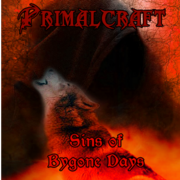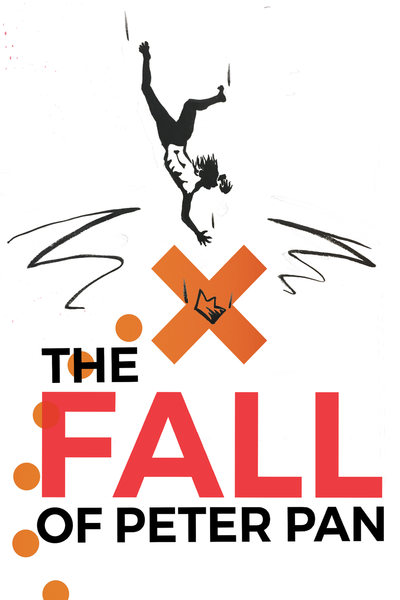Foolish Tootles was standing like a conqueror over Wendy’s body when the other boys sprang, armed, from their trees. They shouted with disappointment at the sight of the crumpled white form.
“You are too late,” he cried proudly, “I have shot the Wendybird. Peter will be so pleased with me.”
Overhead Tinker Bell shouted, “Silly ass!” and darted into hiding, laughing fearfully, for now that she had stopped being bad, she was a little scared at how Peter might react. The others did not hear her. They had crowded round Wendy, and as they looked a terrible silence fell upon the copse of trees.
Slightly was the first to speak. “This is no bird,” he said in a scared voice. “I think this is a girl.”
“A girl?” said Tootles, and fell a-trembling, the bow tumbling from his nerveless fingers and bouncing once.
“And we have killed her,” Nibs said hoarsely.
They all whipped off their caps.
“Now I see,” Curly said: “Peter was bringing her to us.” He threw himself sorrowfully on the ground, and buried his face in his arms.
“A lost girl to join us at last,” said one of the twins accusingly, whilst the other added, “and you have killed her!”
They were sorry for him, but sorrier for themselves, and when he took a step nearer them they turned their faces away, and would not look at him.
Tootles’ face was very white, but there was a dignity about him now that had never been there before.
“I did it,” he said, reflecting. “When ladies used to come to me in dreams, I said, ‘Pretty lady, pretty lady’, and wanted to meet one – for real – ever so much. But when at last she really came, I killed her.”
He moved slowly away, stumbling on the level ground.
“Don’t go,” they called in pity.
“I must,” he answered, shaking; “I am so afraid of Peter.”
It was at this tragic moment that they heard a sound which made the heart of every one of them swell up, beating hard, and block the breath in their throats. They heard Peter crow.
“Peter!” they cried despairingly, for it was always so that he signalled his return.
“Hide her,” they whispered, and gathered hastily in front of the prostrate Wendy. But Tootles stood aloof, shoulders slumped.
Again came that ringing crow, and Peter dropped in front of them. “Greetings, boys,” he cried, and mechanically they saluted, and then again was silence.
He frowned.
“I am back,” he said hotly, “why do you not cheer?”
They opened their mouths, but the cheers would not come. He overlooked it in his haste to tell the glorious tidings.
“Great news, boys,” he cried, “I have brought at last a girl to tell stories to you all. She’s very clever, I looked for all over to find one just like her!”
Still no sound, except a little thud from Tootles as he dropped on his knees.
“Have you not seen her?” asked Peter, becoming troubled. “She flew this way, but the pirates fired Long Tom, and split us apart.”
“Ah me!” one voice said, and another moaned, “O, mournful day.”
Tootles rose. “Peter, my Captain,” he said quietly, “I will show her to you,” and when the others would still have hidden her, said, “back, twins, let Peter see.”
So they all stood back, and let him see, and after he had looked for a little time he did not know what to do next.
“She is dead,” he said uncomfortably. “Perhaps she is frightened at being dead. Stop pretending, Wendy. I didn’t bring you here to die so quickly.” She didn’t appear moved by this statement, and Peter wriggled with the awkwardness of it, for he did not want to deal with a dead girl.
He thought of hopping off in a comic sort of way till he was out of sight of her, and then never going near the spot any more, until all that was left of her had dissolved away over time, or been buried by the Indians. They would all have been glad to follow if he had done this. In a matter of minutes each of them would have erased from his memory Wendy’s having ever existed, much less having been murdered by one of their number.
But there was also an arrow, and that meant Peter could blame someone for the tragedy, and punish them. He took it from her heart and faced his band.
“Whose arrow?” he demanded sternly. “Whose fault?”
“Mine, Peter,” said Tootles on his knees.
“O, dastard hand,” Peter said, and he raised the arrow to use it as a dagger.
Tootles did not flinch. He lifted his chin, baring his throat. “Strike, Peter,” he said firmly, “Strike true.”
Twice did Peter raise the arrow, and twice did his hand fall. “I cannot strike,” he said with awe, “There is something stays my hand.”
All looked at him in wonder, save Nibs, who fortunately looked at Wendy.
“She is alive,” he cried, “the Wendy girl, see, her arm!”
Wonderful to relate, Wendy had raised her shaking hand. Nibs bent over her and listened reverently. “I think she said, ‘Stupid Tootles’,” he whispered.
“She lives,” Peter said briefly, immeasurably relieved.
Slightly cried instantly, “I knew it! The Wendy lives.”
Then Peter knelt beside her and found the brass clasp of her satchel. You remember she had set it over her shoulder and running across her chest when they set off from Number 14.
“See,” he said, “The arrow struck against this. It is the bag I bade her bring. It has saved her life.” Indeed, it had, and the clasp was slightly bent with dissipating the force of the arrow. The mortal blow had turned aside, and transformed instead into a terrible bruise.
“I remember such things happening,” Slightly interposed quickly.
Peter did not hear him. He was ordering Wendy to get better quickly, so that he could show her the mermaids, and she could tell him of battles like Thermopylae and Waterloo. Of course she could not answer yet, being still in a frightful condition of breathlessness and bruising; but from overhead came a long wailing note of frustration.
“Listen to Tink,” said Curly, all indignant, “she is crying because Wendy lives.”
Then they had to tell Peter of Tink’s crime, and almost never had they seen him look so stern.
“Listen, Tinker Bell,” he cried to the woods at large, “I am your friend no more. Begone from me for ever.”
This roused Tink from her hiding place. She flew on to his shoulder and pleaded, but he brushed her off. Not until Wendy again raised her hand did he relent sufficiently to say, “Well, not for ever, but for a whole week.”
Do you think Tinker Bell was grateful to Wendy for interceding? Oh dear no, the little fairy never wanted to hex a person so much. Fairies indeed are strange, and Peter, who understood them best, often cuffed them. But Tinker Bell acted as she thought best for the protection of Peter, and in Wendy she saw a dangerously similar spirit to the boy. The gentle ringing of her sobs faded off with the light of her, until the boys were left alone in the night to plan their next course of action.
But what to do with Wendy in her present delicate state of health?
“Let us carry her down into the house,” Curly suggested.
“Ay,” said Slightly, “that is what one does with ladies.”
“No, no,” Peter contradicted, “you must not touch her. It would not be sufficiently respectful.”
“That,” agreed Slightly, “is just what I was thinking.”
“Just leave me alone, you little imps,” Wendy gasped, still winded by the arrow’s hitting her so hard.
“But if she lies there all night,” Tootles said, “she will die.”
“I won’t die,” Wendy panted, “though I’m going to jolly well strike that devil who shot me.”
“Ay, she will die,” Slightly admitted, “but there is no way around it. We cannot lift her, and she cannot move. She will die after all.”
“Yes, there is,” cried Peter. “Let us build a little house round her.”
They were all delighted. “Quick,” he ordered them, “each of you bring me the best of what we have. Gut our house. Be sharp about it!”
In a moment they were as busy as chefs in the hours before a feast. They scurried this way and that, down for bedding, up for firewood, and while they were at it, who should appear but John and Michael. As they drifted along the ground they fell asleep, plummeted a foot, awakened and stopped, moved another floating pace, and slept again.
“John, John,” Michael would grizzle, tugging at his brother’s hand, “wake up! Where is Nana, John, and Mother?”
And then John would rub his eyes and mutter, “It is true, we did fly.”
You may be sure they were both very relieved to find Peter.
“Hullo, Peter,” they said.
“Hullo boys,” replied Peter amicably, though he had quite forgotten them and had not been in the least concerned for their safety. He was very busy at the moment measuring Wendy with his feet to see how large a house she would need. Of course he meant to leave room for chairs and a table. John and Michael watched him. Tootles, ever helpful in the most aggravating of ways, was kneeling at her head to stop her from rising and further injuring herself.
“Is Wendy asleep?” they asked.
“Yes.”
Wendy, fuming had crossed her arms, determined to endure the boys’ pantomime until she could escape to somewhere peaceful and dark, where she could curl up around the aching bruise in her ribs, and awake refreshed. It would not be a lie, nor any reflection on her courage, to say that she had tears in her eyes from the pain of both being shot, and landing rather roughly on the forest floor.
“John,” Michael proposed, “Let us wake her and get her to find supper for us.” But as he said it some of the other boys rushed on carrying branches for the building of the house.
“Look at them!” he cried, scandalised at their industry. The other little boys he knew were not so busy, nor so capable. It offended the princeling in him to see them so.
“Curly,” said Peter in his most captainy voice, before Michael could begin to pout and cry, “see that these boys help in the building of the house.”
“Aye, aye, sir.”
“Build a house?” exclaimed John.
“For the Wendybird,” said Curly.
“For Wendy?” John said, aghast. “Why? She is only our sister!”
“That,” explained Curly curtly, “is why. We can’t move her, it would not be,” he searched for Peter’s words, “respectful.”
“You? Respectful to Wendy!” Even had John known about her near brush with oblivion, he would still have protested, as little brothers would the world over.
“Yes,” said Peter sternly, “and you will be respectful to her also. Away with them.”
The astounded brothers were dragged away by the enthusiastic lost boys to hack and hew and carry. “Chairs and a hearth first,” Peter ordered. “Then we shall build a house round them.”
“Aye,” said Slightly, “that is how a house is built; it all comes back to me.”
Peter thought of everything. “Slightly,” he cried, “fetch a doctor.”
“Aye, aye,” said Slightly at once, and disappeared, scratching his head. But he knew Peter must be obeyed, and he returned in a moment, wearing John’s hat and looking solemn.
“Please, Sir,” said Peter, going to him, “are you a doctor?”
The difference between him and the other boys at such a time was that they knew it was make-believe, while to him make-believe and true were exactly the same thing. This sometimes troubled them, as when they had to make-believe that they had had their dinners. For Peter, however, when he made-believe in a thing, he believed it so much that it occurred. He saw nothing curious in this.
If the boys broke down in their make-believe, Peter rapped them on the knuckles with a thick branch. He did not like breakdowns; it distracted him from making-believe things to come true.
“Yes, my little man,” Slightly anxiously replied, who had chapped knuckles.
“Please, Sir,” Peter explained, “a lady lies very ill.”
She was lying at their feet, but Doctor Slightly had the sense not to see her.
“Tut, tut, tut,” he said, “Where does she lie?”
“In yonder glade.”
“I will put a glass thing in her mouth,” said Doctor Slightly, and he made-believe to do it, while Peter waited. It was an anxious moment when the glass thing was withdrawn, and Wendy made a passing snap at his hand with her teeth. It was careful watching by Tootles, who was used to wild animals, that prevented Slightly from receiving a nasty bite. This would have resulted in Peter requiring a second doctor, to attend the first, and they were already out of dignified hats.
“How is she?” inquired Peter, twisting his hands together.
“Tut, tut, tut,” said Doctor Slightly, “this has cured her.”
“I am glad!” Peter cried.
“I will call again in the evening to check on Wendy,” Doctor Slightly said; “give her beef tea out of a cup with a spout to it.” He spoke confidently, but after he had returned the hat to John he blew big breaths of relief.
In the meantime the wood had been alive with the sound of axes; almost everything needed for a cosy dwelling already lay at Wendy’s feet.
“If only we knew,” said one, “the kind of house she likes best.”
“Peter,” shouted another, “she is moving in her sleep.”
“Her mouth opens,” cried a third, looking respectfully down at her.
“Perhaps she is going to talk in her sleep,” said Peter. “Wendy, talk of the kind of house you would like to have.”
Immediately, without opening her eyes, Wendy spoke:
“I wish I had a tiny, moss-roofed house, the littlest ever seen, with room just for me and a fire, hidden away in the trees.”
They gurgled with joy at this, for the branches they had brought were dark and woodsy, and all the ground was carpeted with moss. As they rattled up the little house they chattered and laughed enthusiastically, eventually singing out:
“We’ve built the little walls and roof
And made a lovely door,
So tell us, lady Wendy,
What are you wanting more?”
To this she answered, gritting her teeth:
“I want some warm cocoa to drink, and my wolf cub waiting at the door, then let me alone to sleep, and I shall be fine in the morning.” – Which did not rhyme, but we will forgive her. She was tired and sore.
Unfortunately the wolves had all fled deep into the Neverland’s tiny mountains, and taken all their cubs with them. So Michael was fitted with bark ears and a fern tail, and ordered to sit at the door and howl.
“Shut up Michael,” Wendy hissed, her eyes still closed, lying on the grass floor of her hut. Tootles had left as the walls went up, to help with the business of construction.
“B-but I was told to hoo-oooowwwllll!” he protested, and she growled at him.











Comments (0)
See all